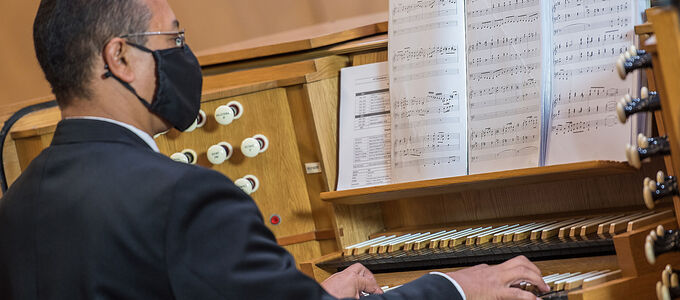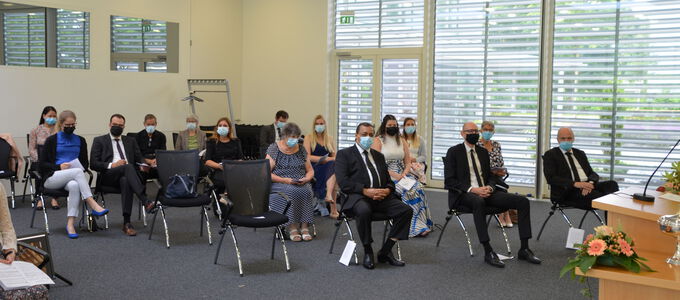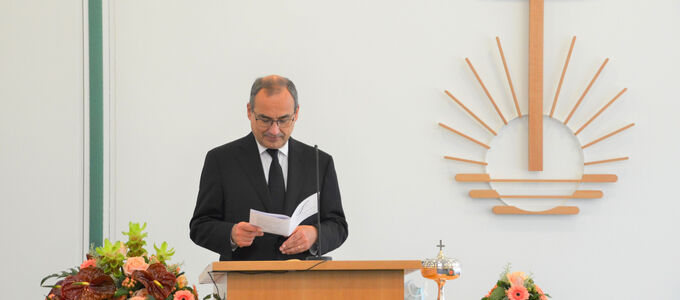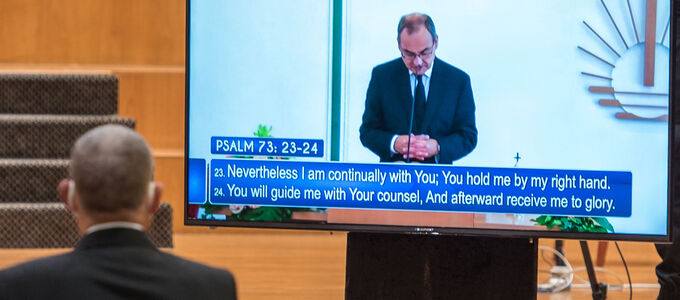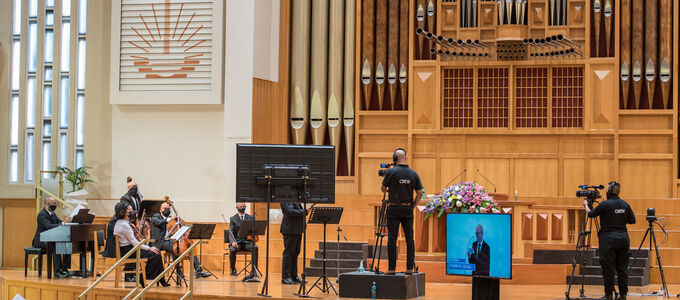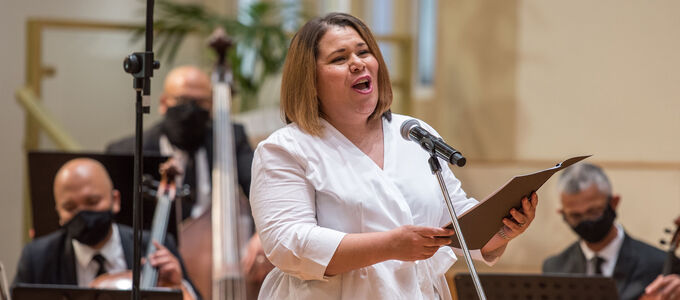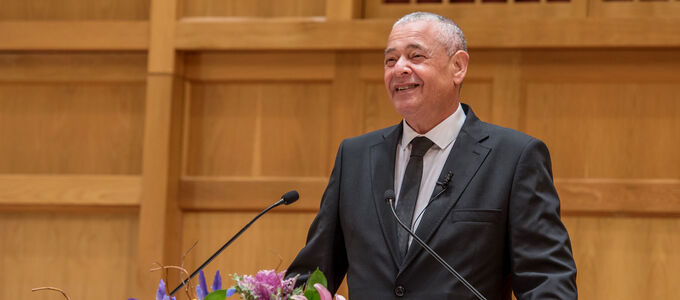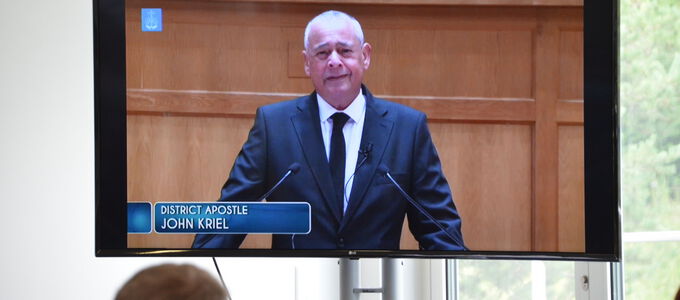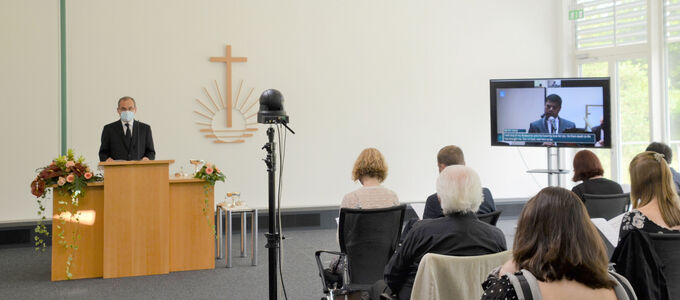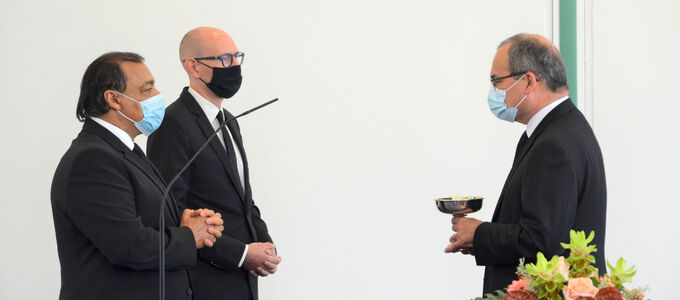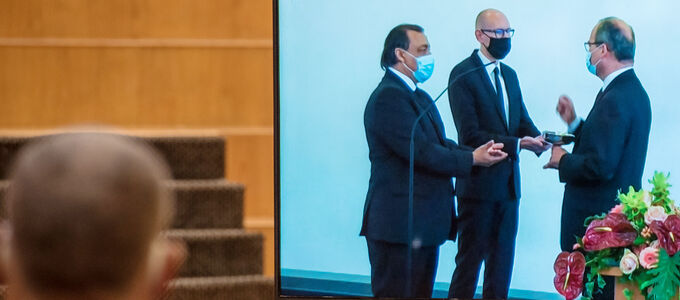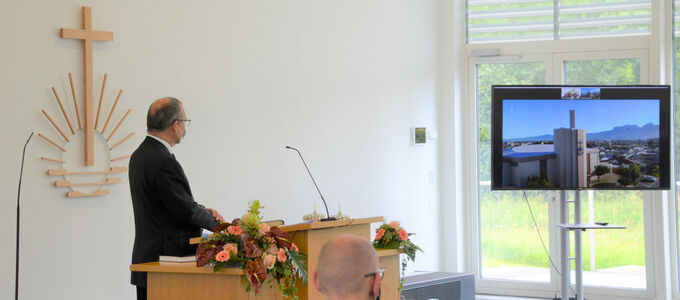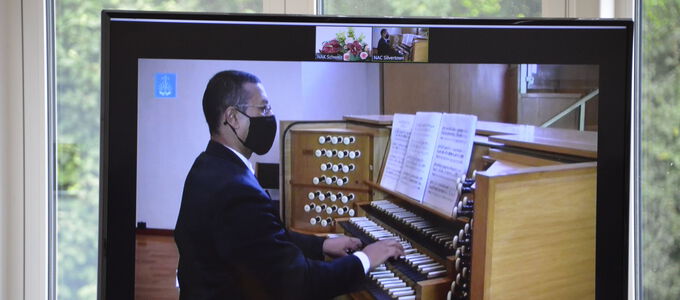
“Why?” is one of the most common questions. Sometimes one asks out curiosity, other times it is out of sheer despair. Here is an excerpt from a sermon on how to deal with the unexplained.
The divine service on Sunday, 11 July 2021 was a little unusual: the Chief Apostle was behind the altar in Zurich (Switzerland); District Apostle John Kriel served along from Silvertown (South Africa) and the music came from there as well. And the brothers and sisters from Zambia and South Africa joined the service either in their congregations or from their homes via radio and television. The service was based on Psalm 73: 23–24: “Nevertheless I am continually with You; You hold me by my right hand. You will guide me with Your counsel, and afterward receive me to glory.”
The psalmist Asaph and Job shared the same fate: they had their doubts about God’s love. The one saw that the wicked had a much better life than he, who served God; and the other, because he was struck by one misfortune after the other, which he was not able to explain.
Uncertainty and doubt
Chief Apostle Schneider cited examples to explain that the same kind of doubts can assail believers even today:
- when misfortune or tragedy strikes: “Why did you not hear my prayers? Why did you not help me?”
- when one sees the prosperity of the wicked: “Those who do not care about the commandments of God have a good life. They are rich, they are healthy, they have everything. And I have nothing.”
- when there is a sense that the Church is not meeting the needs of the faithful: “Don’t talk about heaven, about the future. Let’s talk about the present. I need help right now.”
- when there is dismay that the ministers and members are anything but perfect: “The ministers and the brothers and sisters are anything but perfect. So many things happen that shouldn’t happen. Is that the work of the Lord?”
First aid
“Brothers and sisters, what should we do? We should be as wise as Job and Asaph were.” When everything has been turned upside down, when there are no answers or any guidance, then the Chief Apostle recommends:
- keep in touch with God: “Don’t give up! Keep talking to God. You can tell Him everything. Tell Him that you are not satisfied. Tell Him that you can’t even believe in His love and existence any more. Talk to Him in prayer!”
- pray for God to help you, instead of asking for explanations. “Then give the Holy Spirit a chance to respond. The Holy Spirit needs time and silence to answer.”
- take time to meditate: “Think about your soul, about your faith, and let the Holy Spirit work in your heart. He will answer you! And whenever it is possible, go to church and listen to God’s word.”
Lasting support
There was also advice on how to deal with unanswered questions, suffering, and distress outside of immediate spiritual distress. The Chief Apostle referred to the psalmist Asaph and recommended that we do not focus exclusively on our own plight. Asaph once left his home to go to the temple. He deliberately sought a different perspective, and this is what the Holy Spirit also teaches us today.
- Misfortune is not a punishment, but a consequence of falling into sin: “The circumstances you are going through are not necessarily a consequence of your behaviour because many other people are going through the same situation. And we are all different, so it cannot be that the sinners are punished and the faithful are blessed.”
- God’s love does not spare us from suffering, but it helps us to overcome it: “Remember, the Son of God Himself, Jesus Christ, had to suffer. And that was definitely not a lack of love or concern on God’s part.”
- Jesus Christ wants to deliver us from evil: “Remember His plan. He wants to finish with the devil. He wants to deliver man from the power of sin. He wants to lead you out of this world dominated by sin and lead you into His kingdom, where there is no more suffering.”
- God warns His people of onslaughts: “Remember, Jesus said that those who believe in Him and follow Him will be attacked. They will suffer each time. The evil one will take advantage of their difficulties to destroy their faith.”
In conclusion the Chief Apostle said that we should remember that the Lord does not condemn us when we are weak and in doubt. Let us continue to speak to Him. Rather than demanding explanations from Him, let us humbly ask Him to come and stand by us. Each encounter with God allows us to know Him better. Those who truly know God trust in Him!






